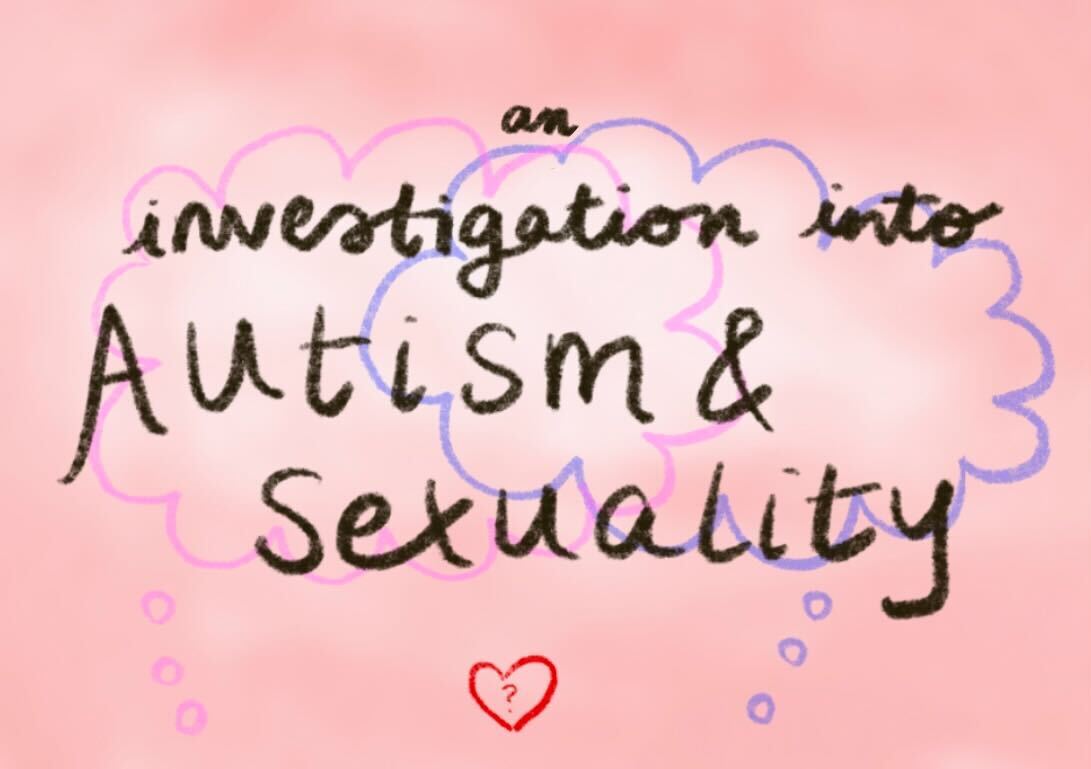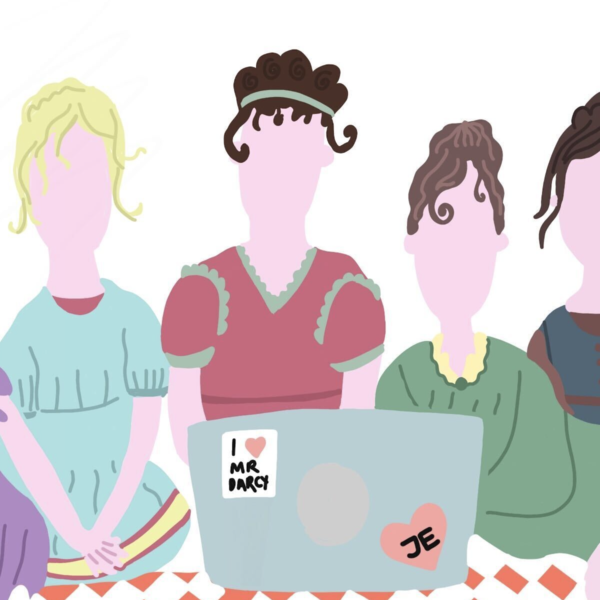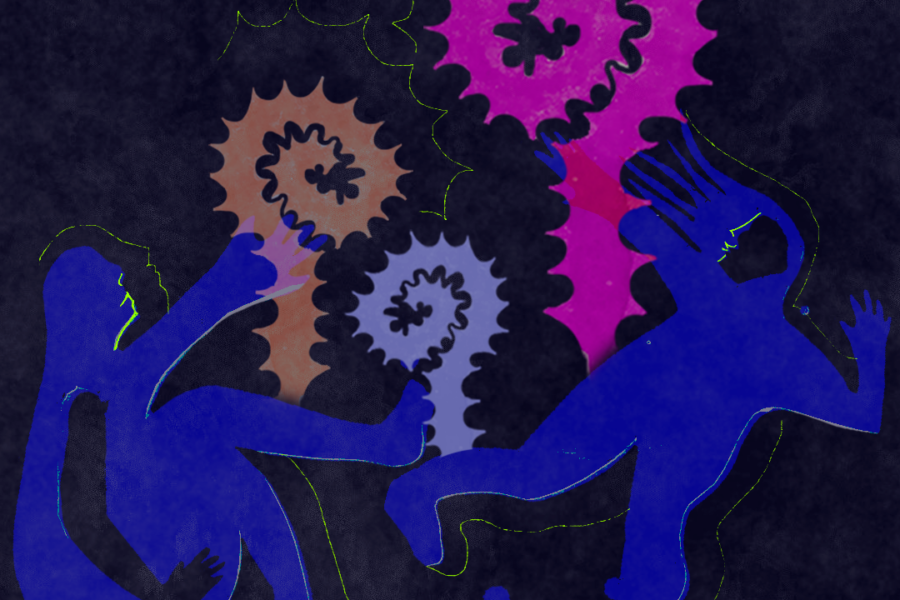Dating etiquette is largely unwritten, and for someone with autism, unwritten rules can be confusing and overwhelming… Romantic relationships are hard enough to navigate when one is fluent in the language of love. Imagine how hard they are when one’s not a native speaker.

An Investigation into Autism and Sexuality
Having open conversations about sexuality can be uncomfortable at the best of times. However, in our often puritanical society, the sexual wants, indentities and experiences of autistic individuals are often disregarded, misunderstood, or downright denied. The idea for this article was born through frustration at the belief that autism and sexuality cannot overlap. Romantic interactions do nonetheless present challenges for many neurodiverse individuals. Dating etiquette is largely unwritten, and for someone with autism, unwritten rules can be confusing and overwhelming. What is assumed to be commonly understood social dating rules for most people, are rules that neurodiverse people can struggle with: ask questions; make eye contact; be tactile but not too tactile. Romantic relationships are hard enough to navigate when one is fluent in the language of love. Imagine how hard they are when one’s not a native speaker.
Thanks to the recent Netflix series Love on the Spectrum, neurodiverse dating has been brought to light in a way it perhaps wasn’t before, but whether this is a positive or negative light is still hazy. For those who are unfamiliar, Love on the Spectrum is a series documenting several autistic individuals exploring the unpredictable world of love and relationships. The reception to the show has mostly been positive in the wider media, but it has sparked some debate within the autistic community. An article published by Spectrum News argues the musical choices are more suited to a show about “clumsy baby giraffes than for a reality show about adult humans.” (1) In a rather jarring moment, the show’s interviewer asks an autistic couple in their twenties who live together if they have “consummated their relationship”. This begs the question: do neurotypicals think autistic people…don’t have sex? This is a more common assumption than you would hope, but recent research shows most autistic individuals are just as interested in sex and relationships as anyone else . I should mention at this point that most of the research focuses on individuals without a simultaneous intellectual disability. (2) To add further credence to this claim, researchers at the University of Cambridge found that in comparison to their neurotypical counterparts – of whom 89% report engaging in sexual activity – 70% of autistic men and 76% of autistic women do so too. (3) The difference is not as striking as people might assume. However, the societal infantilisation of autistic people may have contributed to this belief, and has meant it is often perceived as a ‘taboo’ or ‘inappropriate’ topic to discuss the sexual wants and desires of neurodiverse people.
A further finding of the University of Cambridge study is that autistic individuals are more likely to be LTBGQ+. For example, autistic men are 3.5 times more likely to identify as bisexual, and autistic women are 3 times more likely to identify as lesbian. (3) There are also correlations between autism and gender dysphoria. Although the research is thus far tentative, it has been suggested that compared to the general population, a higher proportion of autistic individuals attended gender-diversity clinics. (4) Although these facts are unsurprising, they are of particular interest to me as a bisexual, autistic woman. Much of my experience in the autistic community has been closely linked with my experience in the queer community. Among the myriad of autistic indicators, one of them is having a ‘strong sense of justice’ and a rejection of social norms. It is therefore understandable that autistic people might disregard the cisgendered, heterosexual narrative that is systemically pushed upon us. Moreover, many of the people with autism that I have encountered, are fervently against the injustice faced by those within the LGBTQ+ community, whether they identify as such or not.
Devastatingly, there is also evidence that autistic women are more vulnerable to sexual exploitation and abuse compared to both the neurotypical population and autistic men. This has been found to include engaging in sex that they have later regretted, consenting to an unwanted sexual experience, and receiving an unwanted sexual advance. (5) Although the cause of this vulnerability is only speculated, it is agreed that “healthcare providers should work cooperatively with autistic and non-autistic individuals alike to communicate effectively and make plans to ensure that sexual relationships and sexual contact remain affirming, safe, and fulfilling.” (3) If this research shows us anything, it is that public discourse around autism and sexuality are inaccurate, and that more research is needed to explore neurodiverse experiences of sexuality.
There are still many people that believe that autistic people do not feel the same sexual and romantic desires, as well as challenges, of their neurotypical counterparts. However, until the discourse around disability and sex becomes more comfortable and commonplace, I fear this belief may be hard to shake. As much as some want to deny us of this fact, autistic people are more than capable of falling in love, of getting married, of having children, and having sex purely for the joy of it.
Article by Helena Moore.
Credit for this lovely image goes to our graphic designer Lucia.
1. Spectrum News, Review: ‘Love on the Spectrum’ is kind, but unrepresentative (2020) https://www.spectrumnews.org/opinion/reviews/review-love-on-the-spectrum-is-kind-but-unrepresentative/
2. International Review of Psychiatry, Gender dysphoria and autistic spectrum disorder: a narrative review (2016) https://www.tandfonline.com/doi/full/10.3109/09540261.2015.1111199
3. Autism Research, The sexual health, orientation, and activity of autistic adolescents and adults (2021) https://onlinelibrary.wiley.com/doi/10.1002/aur.2604
4. Journal of Clinical Child & Adolescent Psychology, A Clinical Program for Transgender and Gender-Diverse Neurodiverse/Autistic Adolescents Developed through Community-Based Participatory Design (2020) https://www.tandfonline.com/doi/full/10.1080/15374416.2020.1731817?scroll=top&needAccess=true
5. Journal of Autism and Developmental Disorders, Characterising the Sexuality and Sexual Experiences of Autistic Females https://link.springer.com/article/10.1007/s10803-019-04204-9#Sec21





Leave a Comment